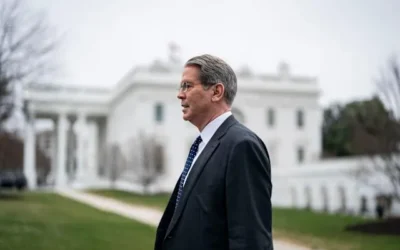The Irish rap group Kneecap made headlines during the second weekend of Coachella 2023 when they displayed pro-Palestine messages during their set, shocking festival organizers and attendees alike. Known for their provocative lyrics and unapologetic stance on political issues, Kneecap has always pushed boundaries in their music and live performances. However, their recent actions at one of the world’s largest music festivals have ignited a debate over censorship, freedom of expression, and the role of artists in political discourse.
Coachella, a festival that attracts a diverse audience with eclectic tastes in music, is no stranger to political sentiments. Yet, the explicit display of pro-Palestinian messaging by Kneecap caught many off guard, raising questions about the extent to which artists can voice their political beliefs and the responsibilities of festival organizers to manage the public narrative.
The Censorship Claims
Before their performance, Kneecap claimed that festival organizers had cut multiple pro-Palestine messages from their planned setlist. In a statement shared by the group online, they expressed their dismay at what they perceived as censorship of their political views. “We are artists, and our art reflects our beliefs and the world we live in,” they wrote. “Attempting to stifle that is an affront to our freedom of expression.”
This claim set the stage for a gripping performance that would see Kneecap end their set with a powerful, unfiltered display of solidarity with Palestine. As they brought their set to a close, they included powerful messages and visuals that were clearly in support of the Palestinian cause, declaring, “We are all Palestinians,” a statement that resonated deeply with many fans present.
Organizers’ Reactions
Festival organizers reportedly had been unaware of the group’s original planned messages yet expressed concern over the staging of the set as Kneecap’s performance began to shift toward politically charged content. “We want to create a space that upholds diversity and inclusion. However, the specific messages shared during the performance were unexpected,” a spokesperson from Coachella was quoted. The response suggests a clash between the festival’s commitment to free expression and their efforts to maintain a neutral platform amidst politically charged content.
After the set, social media was abuzz with comments both supporting Kneecap’s right to express their beliefs and condemning the perceived politicization of a music festival meant for enjoyment and celebration. Supporters praised the artists for their boldness and willingness to take a stand on pressing social issues.
The Pro-Palestine Movement and Music
The situation at Coachella is emblematic of a broader trend within the music industry, where artists increasingly feel compelled to use their platforms to address significant geopolitical issues. The pro-Palestine movement has gained traction globally, especially among younger generations, and artists like Kneecap are finding ways to incorporate their advocacy into performances.
In recent years, major music festivals have seen a surge in performances marked by political messages. Various artists have used their stages to comment on human rights issues, climate change, and social justice movements. This intersection of music and activism reflects a growing trend among musicians who are no longer shy about blending their art with advocacy.
Kneecap: A Brief Overview
Kneecap, hailing from Northern Ireland, has gained International recognition for their unique blend of rap and traditional Irish musical elements. The group has always been characterized by their staunch political commentary and fierce independence. Their approach to music has resonated widely, especially among the youth who identify with their raw, unfiltered expressions and confrontational style.
As a group formed from the spirit of resistance against oppression, Kneecap has consistently tackled issues relevant to their lives and communities. Their music is often infused with references to their Irish heritage, as well as contemporary global issues, making them relevant to a wide audience.
Implications of Their Actions
The backlash from Kneecap’s Coachella performance raises important questions regarding the intersection of art and politics. When should artists be free to express their political beliefs, especially on a stage as visible as Coachella? Where is the line drawn between artistic expression and the expectations of festival organizers or sponsors? The occurrence invites various perspectives on censorship within the arts.
Some critics argue that using a performance platform to relay political messages can distract from the intended purpose of music festivals, which is, for many, about celebration, connection, and joy. Others contend that art has always been a medium for expression and that political statements can lead to transformative dialogue among audiences.
The Audience Reaction
The audience at Coachella displayed polarized reactions to Kneecap’s firm stance. Some concertgoers shared their excitement at witnessing artists who stood up for a cause they believe in. For many fans, the boldness of Kneecap’s messages served as a reminder of the power of youth in challenging the statuses quo. Social media platforms buzzed with supportive fan reactions and hashtags proclaiming solidarity with both Kneecap and Palestine, illustrating a deep identification with the movement.
In contrast, there were attendees who found the delivery of political messages at a music festival inappropriate, citing that festivals should serve as apolitical spaces. This divide in audience responses speaks volumes about the broader cultural climate in which these conversations are happening.
Conclusion: Art as a Reflection of Society
Kneecap’s Coachella set serves as a flashpoint in the ongoing discussions about free expression in the arts, the responsibility of artists to engage with socio-political issues, and the nature of audience expectations at large events. While the reactions may be mixed, this situation underscores the intrinsic connection between art and activism.
In a world increasingly characterized by division, the need for musicians and artists to speak on critical issues is essential. As Kneecap continues to push the boundaries of music and political engagement, they set a precedent for future artists who dare to intertwine their craft with the pursuit of social justice. The question remains: how will the music industry and audiences navigate this evolving landscape of activism within art?







